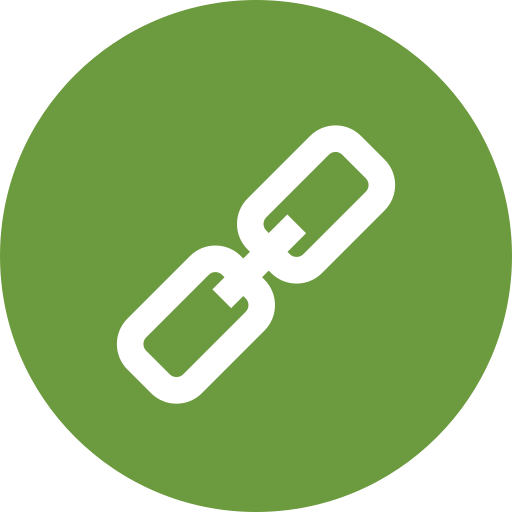| Product name | Per Pill | Savings | Per Pack | Order |
|---|---|---|---|---|
| 30 pills | $3.82 | $114.55 | ADD TO CART | |
| 60 pills | $3.18 | $38.49 | $229.10 $190.61 | ADD TO CART |
| 90 pills | $2.96 | $76.98 | $343.65 $266.67 | ADD TO CART |
| 120 pills | $2.86 | $115.46 | $458.18 $342.72 | ADD TO CART |
| 180 pills | $2.75 | $192.44 | $687.28 $494.84 | ADD TO CART |
Indinavir 400 mg is a medication used to treat HIV/AIDS, and it has been a crucial component of antiretroviral therapy (ART) regimens for many years. With the rise of online pharmacies, it has become easier for patients to order Indinavir and buy Indinavir from the comfort of their own homes. In this article, we will provide a comprehensive guide to ordering and purchasing Indinavir 400 mg online, including information on discount 400 mg Indinavir mastercard, Indinavir 400 mg buy with mastercard, and discount Indinavir 400 mg line.
What is Indinavir 400 mg?
Indinavir 400 mg is a protease inhibitor that works by blocking the action of the HIV protease enzyme, which is necessary for the virus to replicate. By inhibiting this enzyme, Indinavir 400 mg helps to slow down the progression of HIV/AIDS and reduce the risk of complications. It is usually taken in combination with other medications as part of an ART regimen.
Benefits of Ordering Indinavir 400 mg Online
There are several benefits to ordering Indinavir 400 mg online, including:
- Convenience: Online pharmacies allow patients to buy Indinavir from the comfort of their own homes, without having to visit a physical pharmacy.
- Cost savings: Online pharmacies often offer discount 400 mg Indinavir mastercard and other discounts, which can help patients save money on their medication.
- Privacy: Online pharmacies provide a private and discreet way for patients to purchase Indinavir with American Express and other payment methods.
How to Order Indinavir 400 mg Online
To order Indinavir 400 mg online, patients can follow these steps:
- Buy Indinavir from a reputable online pharmacy that offers discount Indinavir 400 mg line and other discounts.
- Fill out a medical questionnaire to provide information about their medical history and current medications.
- Upload a prescription from their doctor or provide other documentation to verify their identity and medical information.
- Choose a payment method, such as Indinavir 400 mg buy with mastercard or purchase Indinavir with American Express.
- Review and confirm their order before submitting it for processing.
Table 1: Online Pharmacies that Offer Indinavir 400 mg
| Pharmacy | Price | Discount |
|---|---|---|
| Pharmacy 1 | $50 | discount 400 mg Indinavir mastercard |
| Pharmacy 2 | $60 | Indinavir 400 mg buy with mastercard |
| Pharmacy 3 | $70 | discount Indinavir 400 mg line |
Tips for Saving Money on Indinavir 400 mg
Here are some tips for saving money on Indinavir 400 mg:
- Buy cheap Indinavir 400 mg on line: Look for online pharmacies that offer discounts and promotions on Indinavir 400 mg.
- Order generic Indinavir on line: Generic versions of Indinavir 400 mg are often cheaper than brand-name versions.
- Purchase Indinavir 400 mg mastercard: Using a credit card or other payment method can help patients earn rewards and cash back on their purchases.
- Discount Indinavir 400 mg fast delivery: Look for online pharmacies that offer fast and free shipping on Indinavir 400 mg.
List of Online Pharmacies that Offer Indinavir 400 mg
Here is a list of online pharmacies that offer Indinavir 400 mg:
- Pharmacy 1: order Indinavir 400 mg with amex
- Pharmacy 2: purchase genuine Indinavir line
- Pharmacy 3: order cheap Indinavir online
- Pharmacy 4: purchase 400 mg Indinavir with visa
- Pharmacy 5: Indinavir 400 mg order without a prescription
Conclusion
In conclusion, ordering Indinavir 400 mg online can be a convenient and cost-effective way for patients to access this important medication. By following the tips and guidelines outlined in this article, patients can buy Indinavir and purchase Indinavir with American Express with confidence. Remember to always order generic Indinavir on line from a reputable online pharmacy that offers discount 400 mg Indinavir mastercard and other discounts.
Table 2: Side Effects of Indinavir 400 mg
| Side Effect | Frequency |
|---|---|
| Nausea | Common |
| Diarrhea | Common |
| Headache | Uncommon |
| Fatigue | Uncommon |
| Rash | Rare |
List of Precautions to Take When Taking Indinavir 400 mg
Here is a list of precautions to take when taking Indinavir 400 mg:
- Take the medication exactly as prescribed by your doctor.
- Do not stop taking the medication without consulting your doctor.
- Inform your doctor of any other medications you are taking.
- Monitor your blood sugar levels regularly.
- Inform your doctor of any changes in your medical condition.
By following these precautions and guidelines, patients can safely and effectively take Indinavir 400 mg to manage their HIV/AIDS symptoms. Remember to always buy Indinavir from a reputable online pharmacy that offers discount Indinavir 400 mg line and other discounts.
Human Immunodeficiency Virus (HIV) is a chronic and potentially life-threatening condition that affects millions of people worldwide. It is a type of virus that attacks the body's immune system, making it difficult for the body to fight off infections and diseases. Managing HIV requires a comprehensive approach that includes medication, lifestyle changes, and regular medical care. In this article, we will discuss the various ways to manage HIV and improve the quality of life for those living with the condition.
Understanding HIV
Before we dive into the management of HIV, it is essential to understand the basics of the condition. HIV is a type of virus that is transmitted through bodily fluids, such as blood, semen, and breast milk. It is most commonly spread through unprotected sex, sharing needles, and from mother to child during pregnancy, childbirth, or breastfeeding. There are several stages of HIV, including:
| Stage | Description |
|---|---|
| Acute HIV Infection | The initial stage of HIV, where the virus is highly active and the body's immune system is severely weakened. |
| Clinical Latency | A stage where the virus is less active, and the body's immune system is able to fight off infections. |
| AIDS (Acquired Immune Deficiency Syndrome) | The most advanced stage of HIV, where the body's immune system is severely damaged, and the person is susceptible to opportunistic infections. |
Medications for Managing HIV
Antiretroviral therapy (ART) is the primary treatment for managing HIV. ART involves taking a combination of medications that work together to suppress the virus and prevent it from progressing to AIDS. There are several types of ART medications, including:
- Nucleoside Reverse Transcriptase Inhibitors (NRTIs): These medications work by blocking the reverse transcriptase enzyme, which is essential for the virus to replicate.
- Non-Nucleoside Reverse Transcriptase Inhibitors (NNRTIs): These medications also block the reverse transcriptase enzyme, but they work in a different way than NRTIs.
- Protease Inhibitors (PIs): These medications work by blocking the protease enzyme, which is essential for the virus to replicate.
- Integrase Inhibitors (IIs): These medications work by blocking the integrase enzyme, which is essential for the virus to integrate into the host cell's DNA.
Lifestyle Changes for Managing HIV
In addition to medication, lifestyle changes play a crucial role in managing HIV. Some of the key lifestyle changes include:
- Maintaining a healthy diet: Eating a balanced diet that is rich in fruits, vegetables, whole grains, and lean proteins can help to boost the immune system and improve overall health.
- Exercising regularly: Regular exercise can help to improve cardiovascular health, reduce stress, and boost the immune system.
- Getting enough sleep: Getting enough sleep is essential for overall health and can help to improve the immune system.
- Managing stress: Stress can weaken the immune system, making it more difficult to manage HIV. Practicing stress-reducing techniques, such as meditation or yoga, can help to manage stress.
- Quitting smoking: Smoking can weaken the immune system and increase the risk of opportunistic infections.
Regular Medical Care
Regular medical care is essential for managing HIV. This includes:
- Regular blood tests: Regular blood tests can help to monitor the virus and adjust treatment as needed.
- Regular check-ups: Regular check-ups with a healthcare provider can help to monitor overall health and catch any potential problems early.
- Vaccinations: Vaccinations can help to prevent opportunistic infections, such as pneumonia and influenza.
Preventing Opportunistic Infections
Opportunistic infections are infections that take advantage of a weakened immune system. Some of the most common opportunistic infections include:
- Pneumonia: A bacterial infection that can cause inflammation of the lungs.
- Tuberculosis (TB): A bacterial infection that can cause inflammation of the lungs.
- Toxoplasmosis: A parasitic infection that can cause inflammation of the brain and eyes.
- Cytomegalovirus (CMV): A viral infection that can cause inflammation of the eyes, lungs, and other organs.
To prevent opportunistic infections, it is essential to:
- Practice good hygiene: Practicing good hygiene, such as washing hands regularly, can help to prevent the spread of infections.
- Avoid close contact with people who are sick: Avoiding close contact with people who are sick can help to prevent the spread of infections.
- Get vaccinated: Getting vaccinated against opportunistic infections, such as pneumonia and influenza, can help to prevent these infections.
Mental Health and HIV
Living with HIV can be stressful and emotionally challenging. It is essential to prioritize mental health and seek support when needed. Some of the ways to prioritize mental health include:
- Seeking support from friends and family: Seeking support from friends and family can help to reduce stress and improve overall mental health.
- Joining a support group: Joining a support group can provide a sense of community and connection with others who are living with HIV.
- Practicing stress-reducing techniques: Practicing stress-reducing techniques, such as meditation or yoga, can help to reduce stress and improve overall mental health.
- Seeking professional help: Seeking professional help from a mental health provider can provide additional support and guidance.
Conclusion
Managing HIV requires a comprehensive approach that includes medication, lifestyle changes, and regular medical care. By understanding the basics of HIV, taking medication as prescribed, making lifestyle changes, and seeking regular medical care, individuals living with HIV can improve their quality of life and reduce the risk of opportunistic infections. Additionally, prioritizing mental health and seeking support when needed can help to reduce stress and improve overall well-being. By working together, we can improve the lives of individuals living with HIV and reduce the stigma associated with the condition.
Resources
For more information on managing HIV, please visit the following resources:
- Centers for Disease Control and Prevention (CDC): www.cdc.gov
- World Health Organization (WHO): www.who.int
- The AIDS Institute: www.theaidsinstitute.org
- HIV.gov: www.hiv.gov
References
- National Institutes of Health (NIH): www.nih.gov
- American Academy of HIV Medicine: www.aahivm.org
- HIV Medicine Association: www.hivma.org
- The Lancet: www.thelancet.com
Note: The information provided in this article is for general purposes only and should not be considered as medical advice. If you are living with HIV, please consult with your healthcare provider for personalized advice and treatment.
























